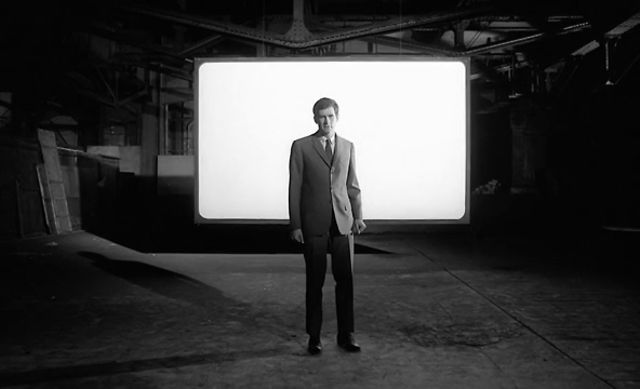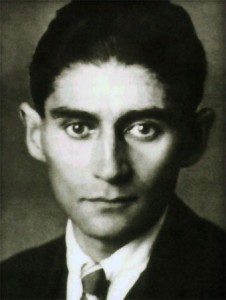Orson Welles died in 1985, when the personal-computer revolution had begun in earnest but before the Internet had become accessible for all. I wonder what he would have thought of the Digital Age. Did he ever use a PC or a Mac? From a 1962 BBC interview about The Trial, in which he discusses marrying Kafka and computers–a seemingly perfect match–for a scene that never made the final cut:
“Huw Wheldon:
There exists a scene of a computer scientist, played by Katina Paxinou, that is no longer in the film. She tells K his most likely fate is that he will commit suicide.
Orson Welles:
Yes, that was a long scene that lasted ten minutes, which I cut on the eve of the Paris premiere. Joseph K has his fortune told by a computer–that’s what the scene amounted to. It was my invention. The computer tells him his fate. I only saw the film as a whole once. We were still in the process of doing the mixing, and then the premiere fell on us. At the last moment I abridged the scene. It should have been the best in the film and it wasn’t. Something went wrong, I don’t know why, but it didn’t succeed. The subject of that scene was free will. It was tinged with black humor; that was my main weapon. As you know, it is always directed against the machine and in favor of freedom.”•
______________________
In 1978, Welles traded a piece of his name for a paycheck selling unimpressive-looking Vivitar cameras:


